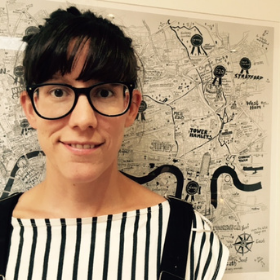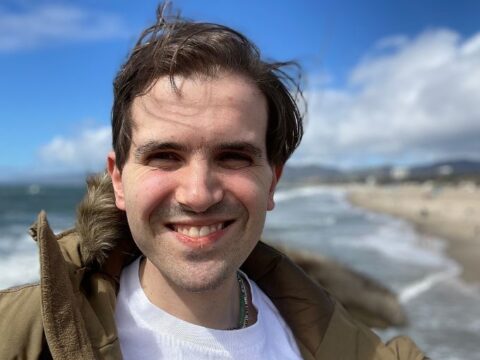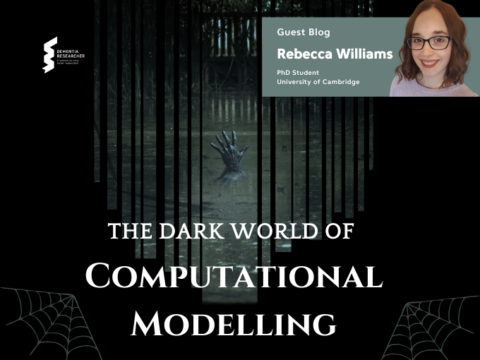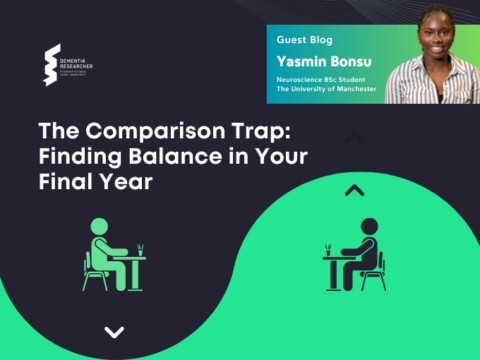As an allied health professional, I consider speech and language therapy the foundation of my professional identity. Like many other health professionals, I chose this career path very early in life. I actually started my undergraduate degree in speech and language therapy (or Human Communication Sciences as the BSc at UCL was then called) 20 years ago this September.
On graduating from University (age 21 and still rather young) I recall a sense of overwhelming relief at finally leaving education. I felt free to be a real grown up, with no homework and no guilt about needing to do homework ever! One of my peers on the course was considering doing a PhD – she hadn’t enjoyed her clinical placements but was academically a pretty high achiever. I somehow decided that this was the type of person best suited to academia. In my mind academics didn’t need social skills, but required incredibly high intellectual skills. I didn’t classify myself as possessing any of these pre-requisite skills thus I felt I wouldn’t ever be appropriate for this high-flying career pathway.
Another decade and a half later and I am over half way through my PhD and I realise what my 21-year-old self didn’t. Being an academic is just not that simple. Academics don’t need to have ridiculously high IQs. But they can benefit from being stubborn, social and curious and I probably do identify with that species. I am stubborn as hell, I like to do things – right through to the end. Anyone who knows me can vouch that I am a bit of a chatterbox and a giant nosy parker. This definition also describes the qualities of many health professionals. They are often pretty good at starting conversations, listening, probing, clarifying, exploring and building relationships. These skills allow them to build rapport with clients, take a medical history, diagnose an issue and make a collaborative management plan. Similarly, these same skills can be helpful in the academic worlds; to build rapport with potential collaborators, to disseminate work and build future research opportunities.
That is not to say that academia has been an easy ride. It is constantly challenging. My NIHR Doctoral Research Fellowship funding application included a section on training and I really could have put a never-ending list in there. In its true form this list included methodological research skills such as a course in systematic literature reviews, qualitative research methods and research design and statistics. Yes, I will say that word again for all the health professionals. Statistics. Although I find this area extremely challenging, there is always someone I can ask to help. Universities are much like hospitals. No one person professes to know all the answers and people share their knowledge and skills generously in my experience.
 It is actually the less tangible things I have found more difficult. Two specific examples spring to mind. First of all, as a speech and language therapist I would see a client with the purpose of trying to help. Of finding some solutions, some plan or some way to ease their future journey. As a researcher, I must be mindful that this is not always appropriate. Depending on my role in the interaction I am often required to sit and simply listen. To hear people but not to provide any of my other speech and language therapy skills or knowledge can be somewhat challenging. But I must be mindful of my influence and my role in the interaction. The second thing I want to mention here is promoting oneself. As a speech and language therapist working in the NHS this was never a part of my role. In fact, I feel rather uncomfortable highlighting which grants I have been awarded, how many publications I have written and promote myself. As a researcher, I have had to put this discomfort aside and tell people what I have done and what I will do so that I make an impression and build some potential links for the future.
It is actually the less tangible things I have found more difficult. Two specific examples spring to mind. First of all, as a speech and language therapist I would see a client with the purpose of trying to help. Of finding some solutions, some plan or some way to ease their future journey. As a researcher, I must be mindful that this is not always appropriate. Depending on my role in the interaction I am often required to sit and simply listen. To hear people but not to provide any of my other speech and language therapy skills or knowledge can be somewhat challenging. But I must be mindful of my influence and my role in the interaction. The second thing I want to mention here is promoting oneself. As a speech and language therapist working in the NHS this was never a part of my role. In fact, I feel rather uncomfortable highlighting which grants I have been awarded, how many publications I have written and promote myself. As a researcher, I have had to put this discomfort aside and tell people what I have done and what I will do so that I make an impression and build some potential links for the future.
A word here about imposter syndrome. Most health professionals I have worked with have been afflicted with imposter syndrome, and low and behold I have found that researchers are afflicted with the same condition. I compare imposter syndrome to feeling out of my depth even though I know how to swim. As a newly graduated speech and language therapist I felt as though I was paddling furiously against a strong current, over time I refined my stroke to glide more easily through these waters. Embarking on a PhD felt like I had hit another unfamiliar set of rapids. I have acquired a few tricks to help me navigate the rapids from my supervisors, my mentor, my supporters, colleagues and friends. I can weather the occasional imposter syndrome storm; in fact, these storms are useful ways to refine my skills, my swimming stroke and the symptoms of imposter syndrome come in shorter, smaller bouts. I have come to terms with the idea that imposter syndrome is a chronic condition, with frequent relapses.
The main point here is that people and networks are the most useful arsenals in a clinical academics’ weaponry. Networking and being able to connect with others – your supervisor, mentor, participants, potential collaborators, potential employers, potential funders, potential research sites – is a key skill. This skill can assist you in finding inspiration, developing ideas for a research project, getting advice and support, finding people to champion you, supervise you, fund you, employ you, encourage you, do research with you and for you, publish what you research, invite you to present your work and disseminate it to develop your career. You can always learn how to write properly – getting the infrastructure in place for the research journey that is key.
I feel strongly that there are many clinical speech and language therapists who don’t realise what wonderful qualities they have and who could thrive and succeed as clinical academics. There is little to demystify some of the ideas around what an academic should look like. There have been conversations amongst academic speech and language therapists on twitter that have resulted in the creation of a network of @ClinAcSLTs. This also led to a meeting at the Royal College of Speech and Language Therapy (RCLST) where we discussed the barriers and issues speech and language therapists face in embarking on a clinical academic career. The group plans to continue blogging and spreading the word about becoming a clinical academic speech and language therapist. Ultimately, we hope to hold regular meetings for both clinicians and academics to come together to share their experiences.
Debunking some of the myths around academia can help health professionals take their first steps onto this career path. For example: You really don’t need to be that clever to be a clinical academic. In fact, many of our clinical skills are great assets for academia.
Author

Dr Anna Volkmer
Dr Anna Volkmer is a Speech and Language Therapist and NIHR Doctoral Research Fellow working in Language and Cognition, Department of Psychology and Language Sciences, University College London. Anna is researching Speech and language therapy interventions in language led dementia.
You can follow Anna on Twitter Follow @volkmer_anna

 Print This Post
Print This Post




